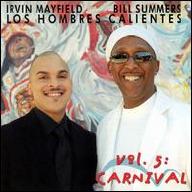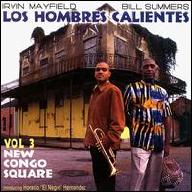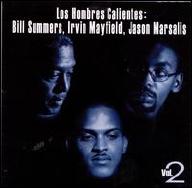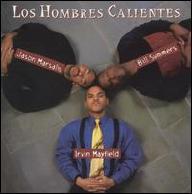Talent seems to run deep in the band. Drummer Jason Marsalis comes from a long line of musically gifted men. One of his brothers, Wynton Marsalis, has won a Pulitzer Prize for his music; two other brothers, Branford and Delfeayo Marsalis, are each finding their way in the music world. Their father, pianist Ellis Marsalis, is a first-class musician in his own right.
Los Hombres Calientes, which happens to mean the Hot Men in English, made their superb debut in early 1998 at a club in New Orleans called Snug Harbor. Within a month, the group had earned themselves a gig at the famous House of Blues, and also signed a record deal with Basin Street Records.
In 1998, the group recorded their self-titled debut album. The superb ten-track album carries numbers like Stardust, After You're Gone, and Irvin's Crisis. The album was picked as a top local release for the year by the New Orleans Times-Picayune newspaper. That same year, Offbeat Magazine named the band as Best New Contemporary Jazz Band and Best New Latin Band. When Billboard Magazine's top jazz albums were listed, Los Hombres Calientes' debut was at number 25.
A subsequent album, Los Hombres Calientes, Vol. 2, hit the store shelves in 1999, bringing in more excellent reviews. Some of the album's tunes are Young Lover at First Sight and Feel Like Makin' Love. David Pulphus had said goodbye to the group by this time and bassist Edwin Livingston had taken his place. Keyboardist Ronald Markham had also been added to the lineup. 2000 saw the release of Volume 3: New Congo Square. Featuring Horacio 'El Negro' Hernandez, who replaced Jason Marsalis behind the drums, the album traced the musical and cultural connections between New Orleans and Cuba, Jamaica, and the Dominican Republic. The indefinable New Congo Square went to receive a Grammy nomination.
In March of 2003, Mayfield, Summers and Los Hombres Calientes returned with Vol.4: Vodou Dance. For this recording, the group continued their musical travels, documenting both modern and ancient African and Afro-based music in Trinidad, Jamaica, Haiti, and western Cuba. ~ Charlotte Dillon, Rovi








